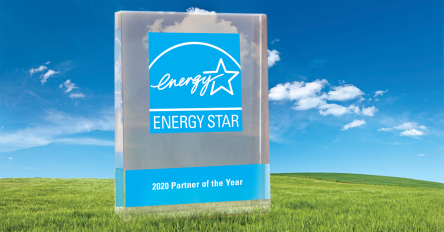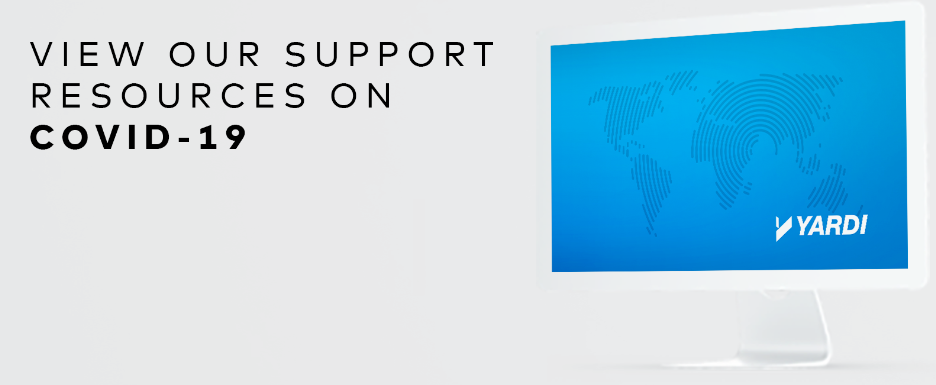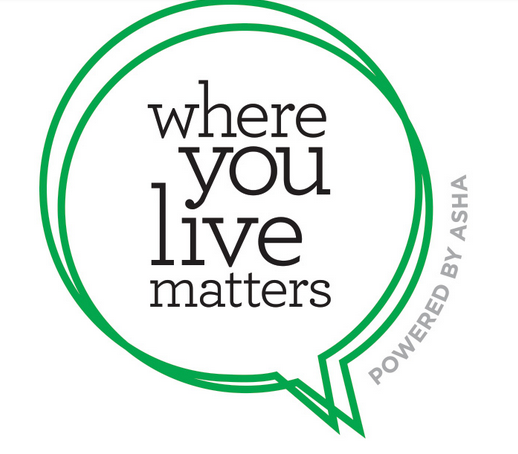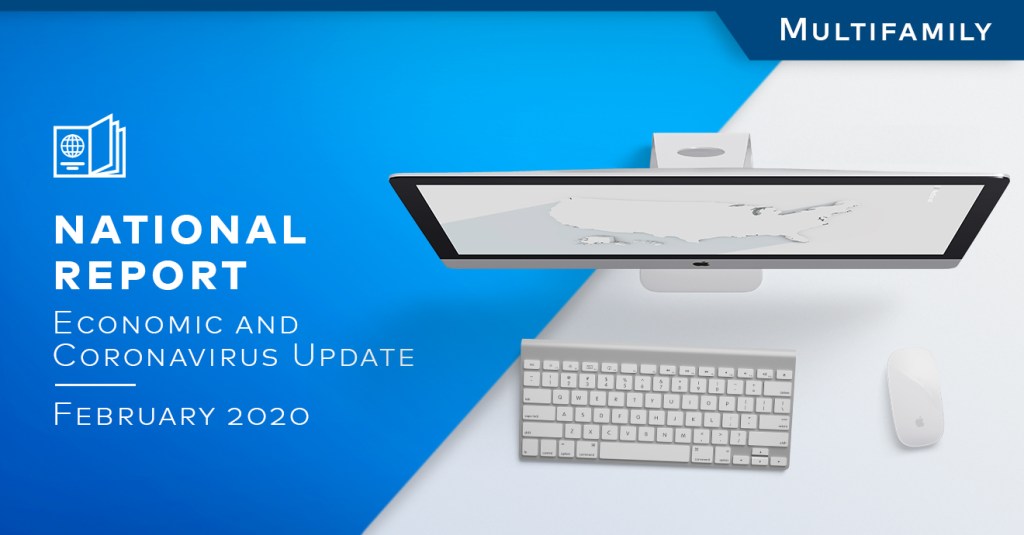Sacramento is one of the first cities to renegotiate its path towards sustainable power. Since the inception of California’s rooftop solar mandate, several municipalities have scrambled to accommodate the push towards clean energy. Sacramento may be the first of many cities to take advantage of a loophole in the mandate. Community solar The California Energy Commission approved a proposal from the Sacramento Municipal Utility District (SMUD) that would allow developers to use offsite solar panel installations in some new construction. The community solar option would allow developers to explore more cost-effective options for powering homes off-site. The existing community solar provision applies to shaded apartment buildings and single-family homes. The approved proposal opens the door for developers to choose rooftop solar or SMUD’s community solar for any project in the municipality. Ethan Elkind, director of the climate program at UC Berkeley’s Center for Law, Energy and the Environment explains the implications of the new provision. “There is a really strong precedential value here,” he said. “This is a new regulation that just went into effect, and this community solar piece of it hasn’t really been tested, and so it’s going to set a precedent for years to come for how utilities and real estate developers will respond to this regulation.” New yet weakening regulation? In essence, the new mandate is already accepting exceptions. Rooftop solar advocates fear the broader implications. Laurie Litman, member of the climate group 350 Sacramento, expressed her apprehensions: “The concern is that if it’s cheaper for developers to not put solar on people’s homes, then they’re going to opt for that choice,” says Litman. “That’s going to undermine the solar homes mandate throughout the state because then other areas and other utilities will ask for that waiver as well.” Secondly,...
Smarter Decisions
New BI Tool for Senior Living
Good leadership depends on good data. Because without data, as the saying goes, you’re just another person with an opinion. Thing is, everyone wants good data for making better business decisions. But not everyone wants to collect, clean, graph and dissect their datasets. Part of the issue is the sheer abundance of information, especially in senior living. From your standard financial metrics to qualitative measures like care level, there’s always something extra to track down. Some staff may not even know where to find the right numbers in the first place. Then there’s the lack of clarity. How do you accurately organize and analyze what you have? Giant spreadsheets of columns and rows are not the easiest to understand, nor are they very shareable. The current state of senior living business intelligence It’s a tricky situation that senior living providers have approached in a couple ways. Manually creating reports: The most common method. You (or your staff) spend days’ worth of preparation before big meetings, pulling numbers from siloed systems, cutting and pasting inside spreadsheets. When you have monthly or even weekly calls that require up-to-date numbers, this is a significant time sink. Adapting third-party tools: Today’s business intelligence software options are powerful, but they are general-purpose tools. Which means long implementation and customization, trying to fit the product to senior living. Some organizations even require a dedicated full-time employee to manually upload data and manage the solution. Thankfully, the future of business intelligence in senior living looks brighter. Introducing a smarter solution for senior living data analytics Your data is now open for business. Make smarter, faster decisions with actionable information for your entire portfolio through Yardi Senior IQ. Designed specifically for senior living providers, Senior IQ surfaces your data in dashboards, tiles...
Better Together
Industry Addresses COVID-19
When the COVID-19 calamity began to wreak havoc on daily apartment operations about a month ago, Jamin Harkness, CAM, CAPS, Executive Vice President, The Management Group, Atlanta, knew it would be something he couldn’t handle on his own. With everyone involved in property management putting out their own fires – mostly the same crisis’ he was dealing with – he decided to reach out to seven of his closest peer confidantes in the Atlanta area and arrange a one-hour roundtable call. The goal was information-sharing — learn what was working and what lied ahead – for this unprecedented work interruption. The Management Group is a new, smaller but growing management company that has six communities under development. Call participants represent small-, medium- and large-sized companies. Everyone had something to contribute. For information how to participate, reach out to Harkness at [email protected]. The group discussed high-urgency topics such as working with a skeleton crew, renewals, amenities and evictions, among other things, and decided to make the call a regular, weekly thing. And as the days went by, everywhere they looked, another unique and critical issue arose, so more contributors were needed. Each weighed on their own networks and word of mouth, and by Week 2, there were 32 people on the call. Week 3: 65 Week 4: 108 The greater the number of participants, the greater the information. Harkness, who has been in property management since 1997, serves as organizer, moderator and secretary for the 11 a.m. ET calls. Realizing his phone system and general IT capabilities were unable to bring together a group this large, he reached out to Yardi and had them create a platform to help the calls run more smoothly through Zoom. Realizing that every participant on the call had their...
Uncertainty Ahead
For U.S. Office Market
February was the last month of the record long economic recovery before U.S. office workers were largely asked to work from home, which will likely have long term implications for the national office market, Yardi Matrix reports in this month’s National Office Report. The rapid growth of COVID-19 has made it clear the economy has quickly shifted into contraction mode as the nation reacts to an unprecedented pandemic. “This is a rapidly changing situation with no clear timeframe or conclusion, and as of now it’s unclear how long the shelter-in-place orders, social distancing and moratoriums on public gatherings will last or how deep the economic contraction may become,” states the report. Market experts also suspect that the mandatory work from home restrictions may have long term implications for offices, perhaps changing how feasible and desirable workers view remote work, while potentially having more challenging implications for the coworking industry. Office transactions will likely come to a halt for the time being despite record low interest rates and widening cap rate spreads. For the most part, the office market didn’t enter this situation overbuilt or with loans that are overleveraged. This should help activity resume once the crisis subsides. “Owners may be hesitant to lease space to coworking firms that are themselves dependent on short-term leases. Further, remote workers that had utilized coworking space may find themselves making the home office a permanent one over the next couple of months,” states the report. Yardi Matrix will offer a two upcoming webinars next week on the impact of COVID-19 on the U.S. real estate market. Join the webinar with multifamily focused insight on Wed., April 1 at 10:30am PST. Join the webinar with a commercial real estate focus on Thurs., April 2 at 12:30pm...
Star Power
Yardi Wins EPA Award
According to the Environmental Protection Agency, using energy efficiently is one of the fastest and most effective ways to save money, reduce greenhouse gas emissions, create jobs and meet growing energy demand. Yardi has once again been named ENERGY STAR® Partner of the Year. The award celebrates companies demonstrating superior leadership, innovation and commitment to environmental protection through energy efficiency and ENERGY STAR. ENERGY STAR provides information that consumers and businesses rely on to make well-informed energy efficiency decisions. Thousands of industrial, commercial, utility, state and local organizations — including more than 40% of the Fortune 500® — rely on their partnership with the U.S. Environmental Protection Agency to deliver cost-saving energy efficiency solutions. The award acknowledges Yardi’s effort to educate and support clients with benchmarking services and technology solutions across a variety of real estate sectors. In 2019, Yardi helped more than 100 clients benchmark energy in ENERGY STAR® Portfolio Manager® for over 2,300 buildings, leading to a nearly 110 percent increase from the previous year. Yardi helped clients benchmark water in over 2,000 buildings, a 300 percent increase from 2018. In addition, Yardi actively promotes ENERGY STAR benefits, publishing more than 20 articles and providing resources for benchmarking energy performance and energy management such as webinars, client conferences courses, executive briefings sessions and other activities. “We are very proud of our clients’ continued success in using ENERGY STAR resources to achieve their corporate and community sustainability goals and we look forward to helping them and the industry reap even more ENERGY STAR benefits going forward,” said Anant Yardi, president and founder of Yardi. The company has earned ENERGY STAR certification for its corporate headquarters in Santa Barbara, Calif., and helps its real estate clients measure success and provide visibility into their ENERGY STAR...
Free Webinars
COVID-19 Client Support from Yardi
Like Yardi, you are closely monitoring COVID-19 recommendations from national and international organizations including the Centers for Disease Control and Prevention and the World Health Organization. You are taking measures to protect your employees and assist your clients during these difficult times. To support your efforts, Yardi has curated and created a library of digital resources to help you practice business continuity, safety and productivity during this period of disruption. Online Training Courses Our near-term reality embraces remote work, social distancing and the need to constantly adapt to change. Though daily office operations have altered, less face-to-face interaction does not mean that staff education and onboarding must come to a halt. Yardi is offering free online training courses for clients that promote productivity, efficiency and security. These courses empower Yardi clients to optimize usage of Yardi software so that you can provide essential services to your residents, tenants, and investors. Free Webinars You can also take advantage of free webinars that explore Yardi solutions that facilitate social distancing while managing properties and other assets. Topics include but are not limited to: How COVID-19 Changes Affordability Compliance Staying connected with residents via RentCafe Facilitating social distancing while managing vendor relations Automating payments and tenant communications using CommercialCafe Leveraging RentCafe Senior Living and EHR tools Recorded webinars are available to clients via Client Central. Yardi Matrix COVID-19 Updates Yardi Matrix also has two webinars set for this week that will focus on the impacts of COVID-19 on the U.S. real estate market. Join experts fully versed in the latest national data for a discussion of the economic and real estate impacts of COVID-19 on the multifamily and commercial industries. Sign up for the multifamily impact webinar. Sign up for the commercial impact...
Health Info on Demand
Yardi and Kno2 Form Partnership
Electronic health care records have been a staple of senior living for years now. They’re more efficient, fast and accurate than their paper-based counterparts, so it’s not hard to see why adoption has grown. But along with this push for progress has come a new challenge. It’s called interoperability, and it’s a technological hurdle that’s only become more pressing in recent months. Why senior living needs interoperability Hospitals have EHR systems they use, and senior living providers have their own. But neither group of solutions were built to talk to one another, so they can’t share health data electronically. Crucial data like medications, allergies, symptoms or even care plans. Instead, when a patient is discharged from a hospital to a senior living community, they’re often handed printed records in a binder. That information itself may be incomplete, so intake staff must then chase down the remaining details through phone, email or fax. This takes extra time and poses a risk for documentation errors that can hinder care. Making every EHR system interoperable will go a long way towards streamlining these care transitions for the safety of patients. And that’s exactly what Kno2 hopes to accomplish. Kno2 provides interoperability as a service to the post-acute care market. Their platform connects to the major health information networks — DirectTrust, Carequality and Commonwell — to enable a swift exchange of data between senior living providers and the rest of the care continuum. Partners in care We’re excited to announce that we’ve partnered with Kno2 to bring its interoperability service into Yardi EHR. Once the integration is complete, senior living providers will be able to electronically send and receive health data from within the solution. Information for incoming residents will populate Yardi EHR automatically, and care providers will also be able to query resident records as needed. “Interoperability is a huge focus in the industry, now so more than ever. Senior living providers are taking extraordinary steps to address COVID-19. They need timely access to critical information,” said Ray Elliott, vice president of senior living for Yardi. “This partnership with Kno2 reflects our shared commitment to taking care of our clients as they care for their own.” The Yardi EHR integration release is planned for Q3 2020, but in the meantime, you can sign up for Kno2’s free public offering in response to COVID-19. During the declared state of emergency, Kno2 is providing on-demand record retrieval at no charge to all health care providers not already connected to Carequality. “The COVID-19 pandemic has amplified the importance of interoperability and the ease in which clinical information needs to be available to an entire healthcare community,” said Jon Elwell, chief executive officer of Kno2. Visit the Kno2 COVID-19 site to sign up today for patient record access through their online portal. And if you have any questions about the upcoming Kno2 integration with Yardi EHR, you can contact us to learn...
Utilizing Market Data...
IMN PM & Ops Forum
Multifamily property performance has been stellar throughout most of the country. There are, however, distinct regional differences in fundamental measures. Savvy investors examine macro and micro economic trends before making investment decisions. Focus areas include rent growth, occupancy trends, supply growth and transaction activity. By understanding those multifamily trends, property managers can optimize property performance and occupancy to satisfy investors. The IMN Property Manager & Operations Forum – Southwest dove into the nuances of real estate data and how it impacts investors’ decisions. On the panel, “Multifamily Investment Trends & Their Impact on Property Managers,” industry experts identified best practices that can help property managers navigate data to their benefit. Chris Nebenzahl, director of institutional research, Yardi Matrix, was one of the experts on the panel. He explored the benefits of monthly national and metro trends reports, such as the reports Yardi Matrix provides for multifamily. Robust reporting provides insights into the industry that can help property managers make informed decisions. Definitely mess with Texas Texas markets, especially the Dallas-Fort Worth metroplex, are very strong places to invest. Supported by job growth and ample land, these markets are ripe with potential. There is a lot of capital in play throughout the state, even in smaller markets. The rise of popularity has made finding deals increasingly difficult. “The value-add trade is far less lucrative and easy to find than it was earlier in the cycle,” says Nebenzahl. “Yields are compressing making the value add harder to accomplish.” He adds that since valuations are high, the next decade will be focused on operational efficiencies, “Hold periods will likely extend out, and high equity multiples will be less likely. As a result, cash flow, managing expenses and driving revenue as much as possible will be essential for...
Safeguarding Seniors
Staying Connected in Senior Living
As the novel coronavirus spreads, senior living providers are taking every precaution to keep their residents healthy and safe. That includes visitor restrictions and entrance screenings. While effective, these safeguards are also creating anxiety for residents and their loved ones, who now find it harder to see each other. What’s happening in the community? How do they keep in contact? During these uncertain times, communicating openly and regularly goes a long way towards reducing fear and building trust. Many senior living providers already have strong infection protocols in place for seasonal flus, so they know how to effectively minimize illness risk. The key is making everyone aware so that residents, families and staff can rest easier. So although the national guidance recommends social distancing, the need to stay connected is stronger than ever. To that end, we’re here to help our senior living clients ensure the wellbeing of their communities. Here are a few simple ways that you can use Yardi tools already available to you to empower communication and prevent business disruption: Overcommunicate on all channels RENTCafé Senior Living can help families stay connected. Residents and loved ones can opt in to receive SMS alerts from the community, and they can also send confidential messages and questions through the online portal to staff about their concerns. On the administrative side, RENTCafé Senior CRM allows you to send emails and track all correspondence from one place. Staff can also set announcements to display on the online portal right after someone signs in. These are simple, effective ways to share updates and useful links about the coronavirus situation. Access and upload health information Within the RENTCafé Senior Living online portal, family members can view the latest records about their residents, including vital signs, diagnoses and medication orders. This data is shared from Yardi EHR in real time, so as caregivers and nurses make their rounds, families can keep tabs on any health changes without having to make extra calls to the community. If a resident must visit a hospital for any reason, the family members can also upload test results and documentation to RENTCafé Senior Living. That way, care staff are kept in the loop so they know exactly how to help when the resident returns. Take routine interactions online Family members who would normally drop off a check in person when visiting should be encouraged to pay their bills online instead. They can see the current balance, view the statement history and schedule one-time or recurring payments (through ACH, credit cards or debit cards) within the RENTCafé Senior Living online portal. The same advice extends to asking maintenance for assistance. RENTCafé Senior Living allows residents and family members to submit requests online, and maintenance personnel will be able to see the tasks instantly on their smartphone. On that note, residents and their family members can also pay their bills and request maintenance on mobile devices through the RENTCafé Senior Living Resident app for Android and iOS. Ensure staff are prepared on every protocol Many providers have revisited their infection protocols ahead of a possible outbreak of COVID-19 in their communities, and it’s critical that all staff are aware of the right steps to take. Yardi eLearning can help your organization quickly distribute the latest training without the potential health risks of a large in-person meeting. The online platform offers live classroom sessions and webinars in addition to on-demand courses. You can quickly customize content around your protocols as well as guidance from the CDC, then track participation and follow up with knowledge checks to ensure that staff are prepared. Help potential residents tour virtually Move-ins over the next few months will likely slow, but they won’t stop entirely. The decision to join a senior living community is often preceded by a health change or care need, and these potential residents will still want to know what a community is...
Support Resources
From Yardi during COVID-19
Yardi is closely monitoring recommendations from national and international organizations including the Centers for Disease Control and Prevention and the World Health Organization and taking the following measures to protect and support its clients, employees and communities during the COVID-19 outbreak: Client Support Property managers’ obligations to tenants, residents, employees and communities continue even in this period of extreme disruption. The Yardi team is actively working on tools and training to help clients ensure business continuity, safety and productivity in this new near-term reality of far more remote work and social distancing. The company will offer free online training courses to help its clients continue to work as productively, efficiently and securely as possible. Yardi is following its own business continuity protocols to ensure uninterrupted client services and encourages clients to contact their client services representatives for help during this difficult time. Employee Support Most of the Yardi team has transitioned to a remote work environment. Healthcare and nursing resources are available to all employees, as are counseling and therapy resources. The company has heightened office hygiene and cleaning protocols for those who remain onsite to deliver essential services. In addition, Yardi postponed or canceled all near-term in-person events and ceased travel in favor of online alternatives. The spring Yardi Advanced Solutions Conference (YASC) has transitioned to a free online presentation for Yardi clients. Industry events that the company normally participates in have been postponed or canceled by their sponsoring organizations. Community Support In addition to the time, energy and financial support that Yardi traditionally donates to philanthropic organizations, we have committed $2 million to food banks and other nonprofits on the front lines of their communities’ fight against COVID-19. “Our team is navigating the COVID-19 crisis with the same philosophy that has guided us for more than three decades: take care of our clients, our employees and our communities. We are confident that all of us will unite to subdue COVID-19, and we’ll emerge from this challenge stronger than ever,” said Anant Yardi, the company’s president and founder. Read a letter from Mr. Yardi on our support resources page. ** Everyone should conduct their own planning based on their specific location and circumstances. While we are dedicated to providing general information to our clients, it is not intended to be healthcare or legal advice. Please consult appropriate government agencies and authorities, as well as healthcare and legal...
ASHA Educates
Demystifying Senior Living
Learning about senior living can be overwhelming, especially to newcomers. It’s an industry people seldom think about until they’re facing the decision to move in themselves or help a parent take the step. Everyone has questions. What it like to live in a community? What’s the difference between all the options? How much does it normally cost? Will Medicare cover it? How do families talk about it? How do they decide? Where do you even start? To answer those questions, older adults and their families can turn to Where You Live Matters. The website is an online library of educational content about senior living, designed to help people make informed, smart decisions about their housing and health needs. There are tons of articles, infographics and videos on a wide range of topics. The site was launched in 2016 by ASHA, the American Seniors Housing Association, but they’ve been building on it since. In 2018, they added a community search feature so that visitors can look up local options. And last fall, ASHA completely overhauled and re-launched the site. It’s now easier to browse on mobile, and there’s more content than ever. At the time of the website’s launch, ASHA noted that much of the online content about aging was written by marketers, and that academic information wasn’t clear enough for consumers. So they set out to create unbiased, research-based materials that anyone could understand. “Our members and organization are committed to giving consumers across the country a place to learn more about the senior housing landscape,” said David Schless, president of ASHA. “There are resources available, but we’re committed to painting a clearer picture.” And while Where You Live Matters is intended primarily for consumers, senior living providers can benefit too. Educational content for...
Avoiding COVID-19 Scams...
Stay Alert and Aware
Even as communities around the world pull together to battle coronavirus (COVID-19), the outbreak provides fertile ground for scammers. Authorities are striving to keep pace with con artists peddling an array of schemes. For example, the U.S. Federal Trade Commission and the Food and Drug Administration have sent warning letters to several sellers of unapproved and misbranded products such as teas, essential oils and colloidal silver. The FDA stresses that no vaccines, drugs or investigational products are approved to treat or prevent the virus. “Cybercriminals will often take advantage of trending topics in the news, such as the coronavirus, to try and prey on consumers using fear and urgency tactics,” says Gary McAlum, senior vice president and chief security officer for financial services provider USAA, who was quoted in americanbanker.com. “Nontargeted phishing campaigns using COVID-19 as a lure in the subject line have been observed since January. These cover the range of pre-existing threats out there, including information-stealing malware,” adds Steven Silberstein, CEO of the Financial Services Information Sharing and Analysis Center, an industry consortium that promotes cybersecurity. According to the FTC and other authorities, online communications that should set off alarm bells include: Email from unknown sources. Analyze URLs carefully before clicking on them. If an email comes from a source that you think is legitimate and requests you click on a link, find another way to validate it. Correspondence claiming to be from legitimate sources like the Centers for Disease Control and Prevention or the World Health Organization. A bogus version of Johns Hopkins University’s popular coronavirus map has been used to embed malware. Offers for treatment or prevention. Solicitations for investment in companies offering in-demand supplies or products pitched as preventing, detecting or curing the virus. Also look out for emails...
7 Ways to Earn Loyalty
During Social Distancing
Social distancing is a necessary yet challenging directive for apartment communities. We must build a sense of community and safety if we want to earn resident satisfaction and loyalty. But social distancing practices don’t exactly conjure warm, fuzzy feelings. We’ve got seven tips for maintaining resident satisfaction and earning loyalty even when keeping your distance. Check on your seniors and vulnerable residents. Call vulnerable renters to make sure that they have the essentials. They will appreciate knowing that you have their wellbeing in mind, even if they’re already taken care of. If they are in need, consider either of the options below to help. Receive donations and stock up for those in need. In times of panic, many people naturally think of self-preservation. Acts of altruism shine brightest during these times! Place a large box outside of the office and invite residents to make food and toiletry donations for those within the community who need it most. Pre-package items can be easily wiped down before distribution. As a business, you may also have wholesale access to resources that are not available in stores. Consider stocking up on essential items for residents in need. It’s a small investment to make to earn resident gratitude, respect, and loyalty. Share community updates and best practices. Use your online resident portal to issue updates by your local health centers, especially any news or tips that are empowering and uplifting. Be sure to cite your sources and provide links when you can. This step encourages residents to get information from credible sources. Inform residents of your measures to sanitize the property. As your property takes additional measures to sanitize the site, inform your residents and prospects. They will appreciate that you are prioritizing their wellness and taking care of staff health. Host online gatherings. It’s important to support a sense of community even when you can’t congregate in groups. Shift community events to online platforms instead! Watch movies and TV shows together on viewing apps and online networks like Watch2gether. Attendees can make comments and share reactions just like in a live setting. Do your best to accommodate those with extenuating circumstances. Technology has enabled many people to work from home. There are some who cannot, particularly those in the service and hospitality sectors. They may not be able to work and may temporarily struggle with rent. Organize and communicate efforts to accommodate renters with extreme circumstances. Compassion during tough times will be remembered during lease renewals. Encourage online payments and online maintenance requests. This is a smooth way to discourage unnecessary visits to the office staff while highlighting conveniences that you’ve made available for residents. If leasing office or maintenance protocols have changed, clearly communicate those changes with renters. When you go above and beyond to support residents during challenging times, they will remember your efforts during lease renewal time. Watch this quick video to learn how the Excelsior Group uses technology to stay engaged with...
Critical Communications
Keeping Residents Informed
During chaotic times like the current COVID-19 pandemic, it’s more important than ever to build and maintain trust with your residents through clear, proactive and consistent communication. Here are four tips to help you navigate resident communications during a global health crisis: Lead with empathy Write a message for humans, from humans. Remember, your units are your residents’ homes. Say, “Here’s what we’re doing to help keep people safe, and here’s what you can do protect your home and family.” Point them to resources in their neighborhood and reliable news sources. Are you changing policies or augmenting services during this time? Maybe you’re adding chat tools to limit personal interactions in the leasing offices. Or implementing curbside drop off for rent checks. Whatever it is, let them know that you’re taking action to adapt to the changing environment. Emphasize online services Remind renters of the online services you have to help limit unnecessary virus exposure. Plainly list all the ways they can pay rent or submit a maintenance request electronically. Add links where applicable. It might seem like overkill, but your long-term residents may not be aware of options that have been added since they moved in. Can they pay rent by text or using the RENTCafé Resident Services Alexa skill? Do you have a mobile app for residents that lets them communicate with your leasing or maintenance staff? Make sure they’re aware. Set expectations Let residents know how often you plan to be in touch with them. Are you going to check in once a week? Every 48 hours? When there are new updates from local or national health organizations? Be clear, so they know what to expect. Worried that you might be bothering them? Unless you’re emailing daily, don’t be. The 2020 NMHC/Kingsley Apartment Resident Preferences Report indicates that more than 80% of renters want to hear from their management company at least monthly in non-emergency situations. Get your message out A well-written message is only effective if people read it. Make sure you’re reaching the people you need to communicate with by distributing your message across multiple platforms. Send an email to your residents Post a message in your resident portal, if you have one Share an excerpt on your social channels that includes a link or phone number where they can get more information Build a custom webpage on your corporate or property website with information about how you’re making things safer for prospects, residents and your team Text updates to residents who have opted in to SMS communications Apply what you learn during this time We’re all going to learn some important lessons in the next few weeks as we work together to slow the spread of COVID-19. Make a note of the different situations your team has to react to as they come up — then use those notes to create a proactive crisis plan for the future. A solid crisis communication plan usually includes some combination of these things: Designated team members, usually from multiple teams Corporate response plan including sample statements for a variety of scenarios Dedicated customer service channels Social media response templates Multi-scenario escalation plan Post-event customer outreach and feedback collection If you want more guidance, Hubspot pulled together six crisis communication plan examples. Whether it’s another virus, a local weather disaster or something else, having a crisis communication plan in place never hurts. The worst-case scenario is also the best-case scenario: you just might not use it. Team Yardi is here for you. If you need help using our RENTCafé resident experience software and CRM tools, or if you want to learn more about what’s available to you, please reach out to us at [email protected] or (800)...
Improve Value
4 Ways LIHTC Can Help
By now, you’ve heard about low income housing tax credits (LIHTC). LIHTC can boost revenues up to 9% and offset up to 80% of project costs. But the program brings its own fair share of risks, headaches and complicated paperwork. If you’re considering this funding option for your next project, there are 4 things you should know before diving in. But first, let’s get the know more about why LIHTC is such a valuable resource. The problem: affordable housing shortage The National Low Income Housing Coalition (NLIHC) reports a shortage of 7 million affordable rentals for low-income families. Of eligible families, more than 70% are “extremely low-income households.” That means that they allot more than half of their income to rent payments. Supply growth could ease high rents and potentially alleviate financial strain on many families. Such supply growth would require investors obtain benefits from affordable housing projects. LIHTC steps towards a solution To make affordable housing more appealing, the US government has offered incentives for investors and property managers. These programs offset low rents collected from renters and make it possible for affordable housing to be profitable. The LIHTC program falls into this category. It has promoted supply growth in affordable housing more than any program of its kind. Why is it so successful? The program offers value for investors and property managers: through the state, the program provides tax credits that are sold to investors. Those credits can be used as tax write-offs. They can also be combined with other programs that may make an affordable housing project more profitable. Affordable housing developers can then pursue affordable housing as viable assets, and low-income families can secure a home. Investors have a few options from which to choose. There are two main tiers...
Multifamily and COVID-19
Yardi Matrix National Report
It seems no industry is immune from the impact of the COVID-19 virus, and that includes multifamily real estate. The global spread of the COVID-19 virus has brought a technical end to the 11-year bull market in equities, forced a European travel ban and sent Treasury rates to historic lows. According to the latest multifamily report from Yardi Matrix, the industry may feel the effects of COVID-19 as it spreads across the nation, although the rental housing industry remains well capitalized and strong enough to weather a modest slowdown. “Owners and operators may face short-term rent collection issues if there is a tightening in the employment market, and value-add projects will likely slow,” states the special report from Yardi Matrix. “However, most real estate investors are poised to sustain their operations and may see an investment opportunity as the market shocks continue.” Travel, hotel, restaurant and trade industries will likely be hurt the worst, as business and leisure travel draw nearly to a halt. “It seems inevitable that the U.S. economy will experience a technical recession,” states the report. “Business travel has all but stopped and personal travel has slowed considerably, leading the airline industry to be one of the hardest-hit sectors. Restaurants and tourism will also feel significant pain as trips are canceled and social distancing increases.” While the data has yet to reflect the impacts of COVID-19 (February employment growth was very strong, jobless claims did not increase, and rent growth continued its steady increase), the coming weeks and months are likely to show employment cuts and a slowdown in trade with widespread impacts. Learn more by downloading the full Yardi Matrix special multifamily report at yardimatrix.com Yardi Matrix offers the industry’s most comprehensive market intelligence tool for investment professionals, equity investors, lenders and property managers who underwrite and manage investments in commercial real...
Get Current
With Energy Updates
The U.S. Energy Information Administration distributes information on energy-related trends and milestones. Here’s a sampling of recent postings from the EIA’s Today in Energy news and information resource. Renewables on the rise The EIA projects that electricity generation from renewable sources such as wind and solar will surpass nuclear and coal by 2021 and natural gas in 2045. Most of the growth in renewable electricity generation comes from wind and solar, which account for about half of renewable generation today. These technologies will account for nearly 80% of the renewable total in 2050. New wind capacity is expected to continue at much lower levels after production tax credits expire in the early 2020s. Growth in solar photovoltaic (PV) capacity will continue for both utility-scale and small-scale applications through 2050 because of declining PV costs. In April 2019, U.S. monthly electricity generation from renewable sources exceeded coal-fired generation for the first time. Wind blows by hydro In 2019, annual wind generation exceeded hydroelectric generation as the top renewable source of energy generation in the U.S. for the first time. Wind generation totaled 300 million megawatthours (MWh) in 2019, exceeding hydroelectric generation by 26 million MWh. Energy consumption heats up World energy consumption will grow nearly 50% by 2050, with the growth focused in regions where strong economic growth is driving demand, particularly Asia. The industrial sector, including refining, mining, manufacturing, agriculture and construction, will account for more than half of end-use energy consumption through 2050, by which time global industrial energy consumption will reach about 315 quadrillion British thermal units (Btu). Transportation energy consumption is slated to increase nearly 40% by 2050 and is largely driven by developing countries with non-market economies. Energy consumed in the buildings sector, which includes residential and commercial structures, is...
3 Questions to Ask
Vendors: Assets or Liability?
There are several factors that can influence a change in a property’s performance. The economy and market conditions are often the largest influences that are beyond your control. Smaller and more controllable factors, like vendor selection, may influence your success as well. If you haven’t evaluated your vendors’ performance since striking the contracts, now is the time. Complacency with vendors is bad business It’s common to find reputable vendors and stick with them until a major event prompts you to reconsider. The result is that the quality of vendor services may slowly and subtly change without your awareness. As the quality of services degrade, it negatively affects your property’s performance. Have resident complaints or dissatisfaction risen? Have you noticed units are harder to lease out? The overall maintenance of your site could be a contributing factor. Any work completed by vendors—landscaping, pool and site maintenance, turning and staging units, for example—are part of the prospects’ and residents’ experience. If vendor performance is underwhelming, your property suffers. Ask the three simple question below to determine if your vendors are truly an asset to your business. Are your vendors organized? Disorganized vendors rarely delivery top-notch services. A few common signs of disorganization include: arriving late to appointments delayed invoicing unclear and unspecific invoicing inconsistent performance or products and poor communication If your vendor demonstrates more than one of these signs, it may be worthwhile to take a closer look at their performance and business practices. Also, ensure that all licensing and insurance is updated each year. A lack of coverage is a risk to you and your customers. Besides, if they’re falling behind on essential documentation, what else are they overlooking? Learn how VendorCafe empowers your business to reduce risk, gain efficiency, and enhance compliance. Are...
Senior Living Safety
Coronavirus Preparation
The novel coronavirus, officially named COVID-19, is spreading globally, and senior living communities are especially at risk due to the age of their residents. We’ve collected these industry resources and recommendations to help senior living providers keep everyone healthy and thriving. Coronavirus Intro Video – WHO This quick video from the World Health organization covers the essentials of what the disease is, where it came from and what symptoms to watch out for. COVID-19 Webinar Recording – AHCA/NCAL This resource is free and open to AHCA/NCAL members as well as the public. The webinar recording discusses how to prevent the spread of the disease, and there are additional videos on how to recognize and manage an outbreak. AHCA/NCAL are also maintaining an emergency preparedness page for COVID-19. Coronavirus Toolkit – Argentum Argentum will continually update this comprehensive site with new information. Currently, they recommend senior living providers take five critical actions: Handwash: Remind residents and staff about handwashing best practices. Clean: Periodically sanitize major touch points (doorknobs, handrails, phones, etc.) and use effective cleaning products. Monitor health: Practice self-care by getting rest, eating nutritious meals and staying away from others with flu-like symptoms. Encourage staff to report any symptoms they or residents have. Follow plans: Review your emergency plans and retrain staff as needed. Communicate: Find out what to communicate, who to communicate with and how to keep channels open. This includes your local health department and other regulatory agencies as well as your suppliers, vendors and maintenance. Advice for Calm Preparedness – LeadingAge Given the understandable confusion and worry that COVID-19 has created, LeadingAge have put together answers to common questions from senior living providers about the disease. There are plenty of best practices for preparing residents and staff. “Attention Visitors” Sign –...
Resident Health and Safety
Multifamily Resources
From stomach bugs to the flu, viral outbreaks are a regular occurrence anywhere where community exists. When it comes to a new risk, such as COVID-19, property managers may feel that you are facing unknown terrain. Fortunately, a new release from the Center for Disease Control (CDC) sheds light on how to best care for your community. Coronavirus identification and transmission COVID-19, commonly called the coronavirus, is a respiratory disease. In late February, the US reported its first cases of COVID-19 in California, Oregon, and Washington. The first potential outbreak in a long-term care facility occurred in Washington. Multifamily and senior housing providers are advised take measures to promote resident health. Coronavirus is most often spread by human-to-human contact, likely when the respiratory droplets produced by an infected person are inhaled by others. It is possible that the virus may spread when the respiratory droplets remain on a surface that is later touched by others. Coronavirus is “spreading easily and sustainably” within communities, reports the CDC. Within the first two weeks of exposure, fever, cough, and shortness of breath may present. Learn what to do if you believe you are infected. Current data suggests that most cases of COVID-19 are mild, and only 16% of cases result in serious illness or death. Vulnerable populations, such as seniors and those with existing conditions of the heart or respiratory system, are at greater risk of serious illness. Preventing coronavirus spread in the leasing office There is a lot about the spread of COVID-19 that is still unknown. The following guidelines have been issued by the CDC based upon what is known about similar coronaviruses. The list below may help minimize exposure to respiratory illnesses in general. Protect staff If your employees feel sick or are symptomatic, encourage them to stay home. Your sick leave policy should support their wellness and quarantining illness. If employees report an ill member of their household, implement or maintain flexible policies that allow them to stay home and care for them. Hygiene and cleanliness Facilitate good hygiene on the premises. Provide disinfectant cleaning materials, disinfectant hand gels, tissues and touch-free disposal bins. Also promote good hygiene with coughing and sneezing. Remind staff members to cover their cough or sneeze with a tissue, throw the tissue away, and then wash their hands for at least 20 seconds. In the absence of soap and water, a disinfectant gel of at least 60% alcohol should be used. Frequently disinfect public surfaces such as door handles, bank transaction keypads, touchscreens, desks and other workspaces. Communicate If an employee is confirmed to have COVID-19, employers should notify fellow staff members of their possible exposure as well. Maintain the confidentiality of the infected coworker as mandated by the Americans with Disabilities Act (ADA). Employees exposed to COVID-19 should refer to CDC guidance for how to conduct a risk assessment of their potential exposure. Maintain communication with your public health department. Check for updates that can help to prevent an outbreak, mitigate risk, and control the spread of infection in cases of an outbreak. Preventing coronavirus spread throughout the community Distribute ways to prevent the spread of viruses at home via multiple platforms such as your community portal, emails, and newsletters. It may also be beneficial to post information in public spaces. The National Apartment Association (NAA) has issued best practice guidelines for dealing with coronavirus in communities. The organization is also hosting a free webinar in conjunction with IREM on Tuesday, March 10. You can sign up for that here. The developing story COVID-19 outbreak is continually under investigation. The CDC is updating its site as the situation develops. Click here to check the CDC website for updates. Get the full list of ways to prevent the spread of viruses in your...




















